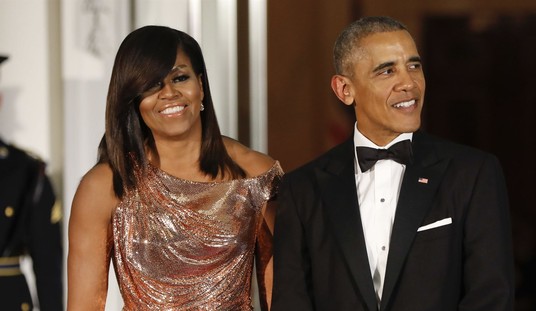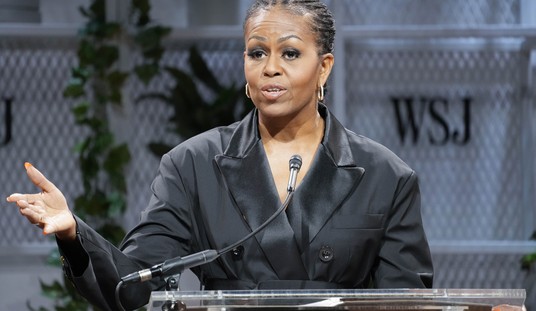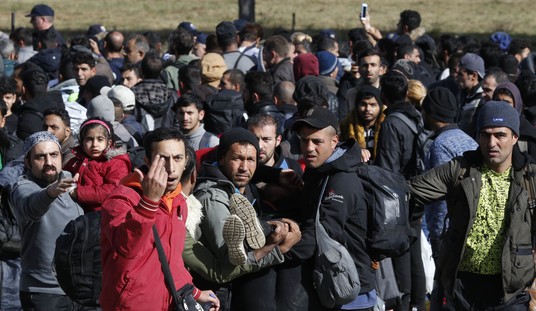In Righteous Indignation: Excuse Me While I Save the World Andrew Breitbart gave a handy capsule summary of critical theory and its origins:
Critical theory, says [Max] Horkheimer, is “suspicious of the very categories of better, useful, appropriate, productive, and valuable, as those are understood in the present order.” So if you liked ice cream better than cake, or thought a hammer might be more useful than a screwdriver in a particular situation, you were speaking on behalf of the status quo. The real idea behind all of this was to make society totally unworkable by making everything basically meaningless. Critical theory does not create; it only destroys, as Horkheimer himself openly stated, “Above all… critical theory has no material accomplishments to show for itself.” No wonder my thought upon graduating was that getting a job was selling out.
When Horkheimer took over the [Franfurt School] in 1930, he filled it up with fellow devotees of critical theory like Theodor Adorno, Erich Fromm, and Herbert Marcuse. Each agreed with the central idea of critical theory, namely that all of society had to be criticized ad nauseam, all social institutions leveled, all traditional concepts decimated. Marcuse later summed it up well: “One can rightfully speak of a cultural revolution, since the protest is directed toward the whole cultural establishment, including the morality of existing society…. What we must undertake is a type of diffuse and dispersed disintegration of the system.”
But what happens when the barbarians are both the critics and inside the gate? Seemingly every new film brings forth a new batch of circular firing squad sort of articles with liberal critics bemoaning products produced by liberal studios and networks. As Jim Treacher quips at the Daily Caller, one critic at the leftwing American Prospect Website believes “Captain America isn’t racist enough or something:”
Adam Serwer at the American Prospect has a criticism of the new Captain America movie. No, not that putting Chris Evans’ head on some scrawny dude’s body is creepy and off-putting. No, not that Cap’s costume tries for a balance between the garish four-color version and a U.S. military uniform, and it just looks kinda dumb. No, not even that the Nazis took a backseat to Hydra. Here’s what Serwer didn’t like:
In the vein of what Ta-Nehisi Coates referred to as a “convenient suspension of disbelief” in X-Men First Class, Captain America: First Avenger dutifully ignores the civil-rights struggles of the 1940s. Well, not exactly — where X-Men simply didn’t mention the civil-rights struggles of the 1960s, Captain America: First Avenger pretends segregation didn’t exist in the 1940s.
In the comic books, Gabe Jones, one of Marvel’s “Howling Commandos,” is the first black soldier to serve in Nick Fury’s integrated unit. This rewires American history a bit seeing as though integration didn’t begin to take place until President Harry Truman’s 1948 executive order, but at least it acknowledges that it is rewriting history…
The cinematic version, which places the Howling Commandos under the authority of Captain America, gives an oblique reference to segregation through a shoutout to Jones’s attending historically black Howard University but does not otherwise refer to segregation in any way. That’s because in the film, segregation doesn’t even seem to have happened. White and black soldiers are shown serving together without incident, erasing one of the moral complexities of World War II — that American service members defeated a murderous racist dictator even as America was upholding a system of racial apartheid at home. It also erases the courage and commitment of World War II’s black veterans, who served their country bravely even as it refused to acknowledge their basic, fundamental rights.
It’s a no-win situation for Marvel, though, isn’t it? Sort of similar to what they did in the Thor movie. They made the Norse god Heimdall a black guy, and they were criticized for being politically correct and not being true to the comics or the myths they’re based on. (Never mind that there’s no particular reason a bunch of made-up sky-beings couldn’t have been racially integrated centuries before us lowly Earth folk. Just because the average 12th-Century Norwegian had never seen a black guy doesn’t mean his gods didn’t know any, right? Besides, Idris Elba is awesome. Check out Luther on Netflix. Seriously, awesome.) And now, by depicting a racially integrated military during WWII, somehow they’re disrespecting black veterans.
But if they had made Asgard and the U.S. military in the ’40s lily-white, do you really think nobody would complain about that?
While based on a cartoon about a man in red, white and powder blue suit fighting a Nazi with a tomato-red skull, at least Captain America is a big screen movie starring real actors (dressed up in the aforementioned costumes). Salon really goes for the big game here, arguing about the hidden imperialist subtext of a children’s TV series starring a plastic toy train:
There is something rotten on the Island of Sodor, home to Thomas the Tank Engine. Viewers won’t find guns, violence, or anything even approaching a double-entendre. There’s none of the blatant racism of early Disney Song of the South or religion delivered through talking produce, as in Veggie Tales. Yet something about Thomas and Friends gives liberal parents the creeps.
For example: In 2009, academic ShaunaWilton wrote that Thomas carried a “conservative political ideology.” Her report was derided as whimsy-hating “politicalcorrectness” by conservative media outlets. But wait: Thomas espouses top-down leadership, is male-dominated, punishes dissent, and is uninterested in the mushy sensitivity of its PBS counterparts. (Thomas and his “friends” often “tease” like this: ” ‘Wake up lazy bones! Do some hard work for a change!”) Its innate conservatism is as obvious as the liberalism of cooperative, solar-panel-building BobtheBuilder and his band of hippie hammer-lovers. Given charges that Thomas is anti–Semitic and that Sodor is a fascistparadise, Wilton’s assessment is mild. Obviously, it’s foolish to claim that Thomas is a fascist. He and his friends are clearly imperialists.
How did I get here? Having failed to reach that perfect bar of parenting, no television at all until Harvard, the exhausted parent critic sits with a train-obsessed child and the TV. I’m overeducated and understimulated, with shelves full of long-ignored critical-theory books, trained in the reading of “texts” through Marxist, feminist, and postmodern perspectives. It’s no wonder that the dormant critical theorist within me awakens when faced with the coded wonderland of children’s programming. Hitchcock is well-covered territory, but Thomas and Friends presents a minefield of untapped deconstructing opportunities!
It may be a few years before I lay out the particularities of British imperialism to my son (I think 5 is probably about right for Kipling criticism), but it’s still important to instill basic skepticism in your young media consumer. Otherwise, you face the very real possibility that your toddler, raised in an environment full of labor abuses and pro-toadying propaganda, might one day look at you and earnestly promise to be “very useful”—the show’s highest compliment for an engine. In our home, Thomas and Friends must rule Brittania no more, and some ugly truths about unjust train society must be told.
Wow, who knew that PBS was just as evil and imperialist as Fox News?
Or Marvel comics, for that matter.










Join the conversation as a VIP Member